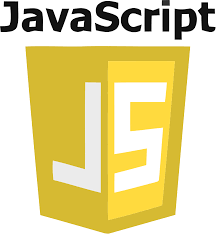JavaScript Functions:
JavaScript functions are blocks of code designed to perform a specific task. They are defined using the function keyword and can be invoked (called) at any point in a program.
Here is the basic syntax and usage of JavaScript functions:
Function Declaration:
javascript
// Function declaration
function greet(name) {
console.log("Hello, " + name + "!");
}
// Function invocation
greet("John"); // Output: Hello, John!
 |
| JavaScript Functions |
In the example above:
greet is the function name.
(name) is the parameter list. Functions can accept parameters (input).
The function body is enclosed in curly braces {} and contains the code to be executed.
console.log is a built-in JavaScript function that outputs information to the console.
Function Expression:
javascript
// Function expression
var add = function (a, b) {
return a + b;
};
// Function invocation
var result = add(3, 5);
console.log(result); // Output: 8
In this example:
add is a variable holding an anonymous function.
The function is assigned to the variable using the = operator.
The function can be invoked using the variable name (add).
Arrow Function (ES6+):
javascript
// Arrow function
const multiply = (a, b) => a * b;
// Function invocation
const product = multiply(4, 6);
console.log(product); // Output: 24
Arrow functions provide a concise syntax, especially useful for short functions.
Function Parameters and Return:
javascript
// Function with parameters and return statement
function square(number) {
return number * number;
}
var squaredValue = square(4);
console.log(squaredValue); // Output: 16
Functions can have parameters that act as placeholders for values passed during invocation.
The return statement is used to specify the value the function should return.
Default Parameters (ES6+):
javascript
// Function with default parameter
function power(base, exponent = 2) {
return Math.pow(base, exponent);
}
var result1 = power(3);
var result2 = power(3, 4);
console.log(result1); // Output: 9
console.log(result2); // Output: 81
Default parameters allow you to specify a default value for a parameter if one is not provided.
Rest Parameters (ES6+):
javascript
// Function with rest parameter
function sum(...numbers) {
return numbers.reduce((total, num) => total + num, 0);
}
var totalSum = sum(1, 2, 3, 4, 5);
console.log(totalSum); // Output: 15
The rest parameter (...numbers) allows a function to accept an indefinite number of arguments as an array.
Scope of Variables:
JavaScript has two types of variable scope:
Global Scope: Variables declared outside any function are global and can be accessed throughout the program.
Local Scope: Variables declared inside a function are local and can only be accessed within that function.
javascript
var globalVar = "I am global"; // Global variable
function example() {
var localVar = "I am local"; // Local variable
console.log(globalVar); // Accessible
}
example();
console.log(localVar); // Error: localVar is not defined
Understanding scope is crucial for avoiding naming conflicts and managing variable lifetimes.
These are the fundamental concepts of JavaScript functions. They play a key role in organizing code, promoting reusability, and encapsulating logic in a program.